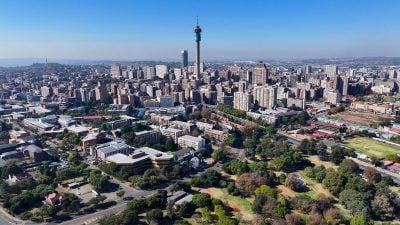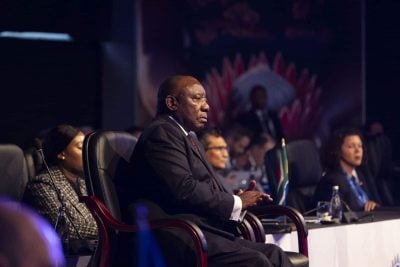SDGs in Africa
To further illustrate this point, let’s take SDG 1: End poverty in all its forms everywhere. While the MDG framework emphasises full employment and expansion of income-generating activities, the new SDG framework emphasises sustainability of poverty reduction across generations. It specifically calls on countries to enhance the resilience of the poor to climate-related and other shocks.
SDG 13 says: Take urgent action to combat climate change and its impacts. This concept cuts across every single goal under the proposed SDG framework. For instance, achieving SDG 8: Promote sustained, inclusive and sustainable economic growth, full and productive employment and decent work for all is predicated on increased levels of productivity through economic diversification, technological progress and innovation. Similarly, to achieve SDG 9: Build resilient infrastructure, promote inclusive and sustainable industrialisation and foster innovation, the new framework calls for significantly raising industry’s share of employment in GDP.
In Africa, where most jobs created over the last few decades have come from inefficient and productivity-reducing informal sectors, this new framework should be welcomed. It is consistent with the recommendations of the Lagos Plan of Action adopted by African heads of state in the 1980s.
Article 52 of that Plan called upon member states to give a major role to industrialisation to deepen intra-regional trade and integrate African countries into the global economy. However, the Lagos Plan of Action was not followed by concrete steps to ensure their implementation.
In part, that failure was due to a lack of commitment from African leaders, but also to fiscal austerity measures which curtailed the expansion of public investments with pernicious effects on growth. Against such a poor implementation record, why should anyone, even the most enthusiastic African development champions, suddenly believe that African countries will be successful at implementing programmes that have eluded them for decades?
Indeed, very few African countries are likely to attain the MDGs next year, even though they are significantly less complex than the highly interconnected SDGs.
For instance, if we take the first MDG: Eradicating Extreme Poverty, we find that while performance in East Asia has been impressive, with most countries exceeding that goal, very few countries are on track to do so in Africa. More worryingly, projections suggest that the region will account for more than 77% of the world’s poor by 2030, when world leaders reconvene another global summit to assess progress against SDG targets.
Want to continue reading? Subscribe today.
You've read all your free articles for this month! Subscribe now to enjoy full access to our content.
Digital Monthly
£8.00 / month
Receive full unlimited access to our articles, opinions, podcasts and more.
Digital Yearly
£70.00 / year
Our best value offer - save £26 and gain access to all of our digital content for an entire year!
 Sign in with Google
Sign in with Google 


